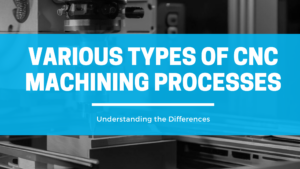
CNC Polishing and Sanding: Achieving the Right Surface Finish for Your Machined Parts
In CNC machining, dimensional accuracy is essential—but it is not everything. Surface finish often plays an equally important role, whether for assembly, performance, or the overall appearance of a part. This is where polishing and sanding come into play.

CNC Machining Terms to Know: A Simple Guide for Manufacturers
CNC machining comes with a lot of technical language, and it can feel overwhelming if machining is not your day-to-day focus. For many manufacturers, purchasing teams, engineers, and operations managers, understanding a few key CNC terms can make a big difference.

Various Types of CNC Machining Processes: Understanding the Differences and Their Applications
CNC machining, or Computer Numerical Control machining, is a process where machines are controlled by computer programs instead of manual operation.

Rapid Production Ramp-Up: How to Efficiently Stabilize a New Machined Part
In a manufacturing environment where lead times are tight and assembly lines depend on supplier reliability, the ability to quickly bring a new part into production is a strategic advantage.

Prototype Shop or CNC Production Partner: What’s the Difference?
In the world of CNC machining, not all suppliers play the same role. Some companies specialize in prototyping, while others focus on recurring production.

High-Efficiency Turning Strategies for Large Production Runs
In the manufacturing sector, turning a part occasionally has nothing in common with producing hundreds or thousands of units consistently.

